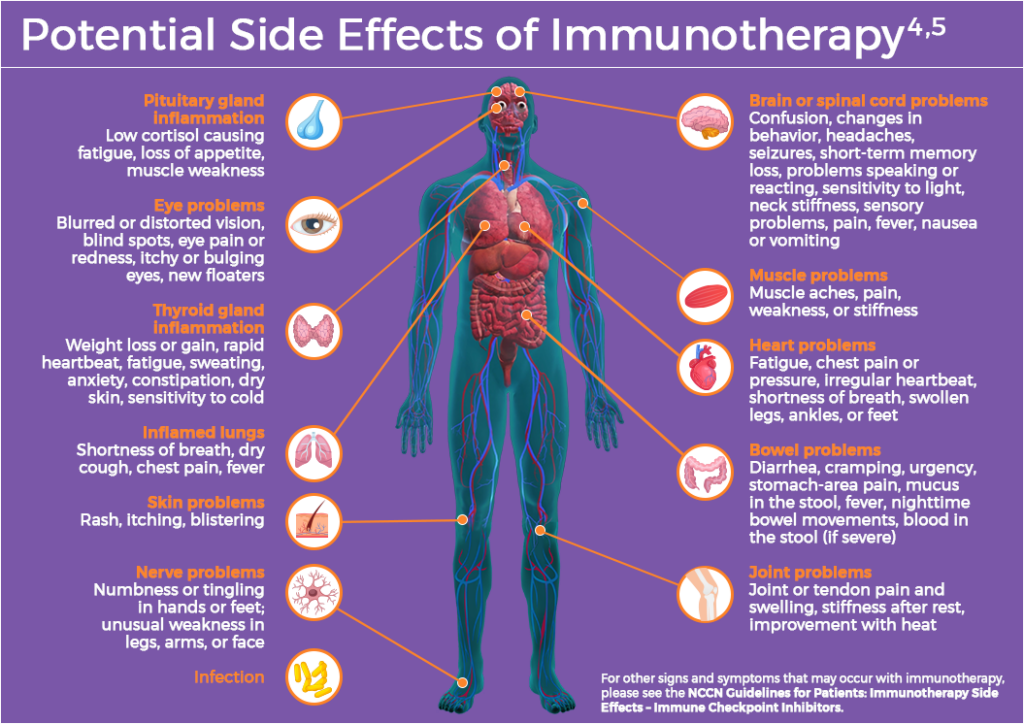This activity is provided by Med Learning Group.
This activity is supported by an independent medical education grant from Regeneron Pharmaceuticals, Inc.
Copyright © 2024 Med Learning Group. Built by Divigner. All Rights Reserved.
Understanding Treatment Side-Effects
Understanding Treatment Side-Effects
Cancer treatments can be accompanied by various side effects.1 While researchers continue to work diligently to improve the effectiveness of cancer treatments, they are also working to reduce the accompanied side effects.1 Common side effects of chemotherapy and radiation therapy include fatigue, mouth, gum and throat sores, nausea and vomiting, diarrhea, skin and nail changes, hair loss, changes in weight, numbness, tingling and pain in the hands and feet, changes in concentration and focus, and infection.2,3
Immunotherapy can have different side effects than chemotherapy, and can affect the whole body.4 Side effects that are severe occur in <5% of those who receive immunotherapy, although mild side effects can be experienced in as many as 30%-50%.4 These side effects (called immune-related adverse events – or irAEs) can occur at any point, including shortly after starting treatment, months later and after treatment has ended.4,5
Your cancer care team can provide information on what to look for and how to contact them about any symptoms that may be a side effect to cancer treatment.2,3,5 It is important to immediately report any symptoms to an oncologist and/or other members of the cancer care team so they can be managed appropriately.2
References
- Yale Medicine. Side Effects of Cancer Treatment. https://www.yalemedicine.org/conditions/side-effects-cancer-treatment
- American Cancer Society. Chemotherapy Side Effects. https://www.cancer.org/treatment/treatments-and-side-effects/treatment-types/chemotherapy/chemotherapy-side-effects.html
- National Cancer Institute. Radiation Therapy Side Effects. Reviewed January 11, 2022. https://www.cancer.gov/about-cancer/treatment/types/radiation-therapy/side-effects
- National Comprehensive Cancer Network (NCCN). Understanding immunotherapy side effects. 2022.https://www.nccn.org/docs/default-source/patient-resources/immunotherapy_infographic.pdf
- National Cancer Institute. Immunotherapy Side Effects. Reviewed February 16, 2023. https://www.cancer.gov/about-cancer/treatment/types/immunotherapy/side-effects
All URLs accessed February 28, 2023.


